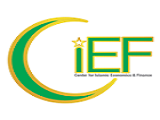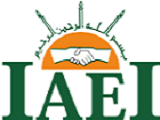Exploring Halal Awareness and Its Impact on Skincare Purchase Intentions: A Structural Equation Modelling Approach
Abstract
Indonesia, a nation with the highest number of Muslims, ranks second globally in terms of the consumption of halal cosmetics, following India. There is a growing worry about halal items. This study will examine the impact of halal awareness on intention to purchase skincare products. This study uses a Structural Equation Modelling technique using SMART PLS tools to analyze the factors driving purchase interest. These components include Religious beliefs, Self-identity, Halal Certification, and Halal Knowledge. The data collection in this study was conducted using a questionnaire, employing random sampling techniques to gather 57 samples. The findings of this study indicate that religion and self-identity do not substantially impact halal awareness. Conversely, the certification and understanding of halal practices substantially impact the awareness of halal products, including religious beliefs, self-identity, halal certification, and halal knowledge, which in turn has a major influence on the intention to acquire such products.
Keywords
Full Text:
PDFReferences
Aji, H. M. (2018). The effect of knowledge about halal and Islamic religiosity on attitude toward halal label (Vol. 1).
Amalia, F. (2019). The Role of Religiosity on Halal Product Purchasing Decision Case Study : Wardah Cosmetics. Journal of Digital Marketing and Halal Industry, 1(1), 19–24. https://doi.org/10.21580/jdmhi.2019.1.1.4774
Amalia, R., & Rozza, S. (2022). Analisis Pengaruh Halal Awareness, Religiusitas, Gaya Hidup dan Viral Marketing Terhadap Keputusan Pembelian Produk Skincare dan Kosmetik Halal (Studi pada Generasi Z di DKI Jakarta). Account: Jurnal Akuntansi , Keuangan. Perbankan, 9(2), 1680–1690.
Aziz, Y. A., & Chok, N. V. (2013). The Role of Halal Awareness, Halal Certification, and Marketing Components in Determining Halal Purchase Intention Among Non-Muslims in Malaysia: A Structural Equation Modeling Approach. Journal of International Food & Agribusiness Marketing, 25(1), 1–23. https://doi.org/10.1080/08974438.2013.723997
Briliana, V., & Mursito, N. (2017). Exploring antecedents and consequences of Indonesian Muslim youths’ attitude towards halal cosmetic products: A case study in Jakarta. Asia Pacific Management Review, 22(4), 176–184. https://doi.org/10.1016/j.apmrv.2017.07.012
Diah, A. R. P. (2022). Pengaruh Label Halal Terhadap Minat Beli Produk Skincare Dengan Religiusitas Sebagai Variabel Moderasi (Studi Penelitian Pada Konsumen Produk Skincare Kota Bandar Lampung ).
Dickson, P. R., & Sawyer, A. G. (1990). The Price Knowledge and Search of Supermarket Shoppers. Journal of Marketing, 54(3), 42. https://doi.org/10.2307/1251815
Fataron, Z. A., & Rohmah, H. (2019). Effect Analysis of Trust, Ease, Information Quality, Halal Product on Online Purchase Decision of 2016-2018 Batch Students of Islamic Economics Study Program in UIN Walisongo at Shopee Marketplace. Journal of Digital Marketing and Halal Industry, 1(1), 1–18. https://doi.org/10.21580/jdmhi.2019.1.1.4772
Haryanto, B., Purwanto, D., Dewi, A. S., & Cahyono, E. (2019). How does the type of product moderate consumers’ buying intentions towards traditional foods? (Study of consumer behavior in Indonesia). Journal of Asia Business Studies, 13(4), 525–542. https://doi.org/10.1108/JABS-10-2018-0299
Huda, M. Q., Hidayah, N. A., & Fetrina, E. (2021). Evaluasi Kesadaran dan Persepsi Generasi Milenial Terhadap Restoran Bersertifikasi Halal di Indonesia. Halal Research Journal, 1(1), 45–55. https://doi.org/10.12962/j22759970.v1i1.54
Indah Wahyuningsih. (2018). Intensi Konsumen Terhadap Kosmetik Dan Produk Skincare Halal Di Indonesia : Pendekatan Theory of Planned Behavior. Journal of Economics and Business Aseanomics (JEBA), 3(1).
Jihan, A., Musa, R., & Hassan, F. (2016). Factorial Validation Predictors of Attitude among user and Nonuser of Halal Skin Care Product. Procedia Economics and Finance, 37(16), 239–244. https://doi.org/10.1016/s2212-5671(16)30120-4
Lada, S., Harvey Tanakinjal, G., & Amin, H. (2009). Predicting intention to choose halal products using theory of reasoned action. International Journal of Islamic and Middle Eastern Finance and Management, 2(1), 66–76. https://doi.org/10.1108/17538390910946276
Linarti, U., & Ulfa, M. (2021). Behavioral model modification theory of planned behavior considering factors of religiosity and awareness of purchasing halal cosmetics: a case study in yogyakarta. Journal of Halal Science and Research, 2(2), 57–64. https://doi.org/10.12928/jhsr.v2i2.1898
Maichum, K., Parichatnon, S., & Peng, K.-C. (2017). The Influence of Attitude, Knowledge and Quality on Purchase Intention towards Halal Food: A Case Study of Young Non-Muslim Consumers in Thailand. IRA-International Journal of Management & Social Sciences, 6, 354–364. https://api.semanticscholar.org/CorpusID:55234767
Niessen, & Hamm, &. (2013). Identifying the gap between stated and actual buying behaviour on organic products based on consumer panel data. http://orgprints.org/11998
Nurhasah, S., Munandar, J. M., & Syamsun, M. (2018). Faktor-Faktor yang Mempengaruhi Minat Beli Produk Makanan Olahan Halal pada Konsumen. Jurnal Manajemen Dan Organisasi, 8(3), 250–260. https://doi.org/10.29244/jmo.v8i3.22473
Pahlevi, R. (2022). Konsumsi Kosmetik Halal Indonesia Terbesar ke-2 di Dunia. https://databoks.katadata.co.id/datapublish/2022/03/15/konsumsi-kosmetik-halal-indonesia-terbesar-ke-2-di-dunia
Rani, N. S. A., & Krishnan, K. S. D. (2018). Factors that influence Malay students in purchasing skincare products in Malaysia. Journal of Business & Retail Management Research, 13(01), 15–21. https://doi.org/10.24052/jbrmr/v13is01/art-02
Rizaty, M. A. (2022). Jumlah Penduduk Muslim Indonesia Terbesar di Dunia pada 2022. https://dataindonesia.id/varia/detail/populasi-muslim-indonesia-terbesar-di-dunia-pada-2022
Sabita, R., & Mardalis, A. (2023). Do celebrity endorsement, halal label, and Word of Mouth affect Millennials to purchase skincare? Journal of Enterprise and Development, 5(2), 257–275. https://doi.org/10.20414/jed.v5i2.6968
Salehudin, I., & Luthfi, B. A. (2013). Marketing Impact of Halal Labeling toward Indonesian Muslim Consumer’s Behavioral Intention Based on Ajzen’s Planned Behavior Theory: Policy Capturing Studies on Five Different Product Categories. ASEAN Marketing Journal, 3(1). https://doi.org/10.21002/amj.v3i1.2013
Santoso, S. (2012). Analisis Structural Equation Modelling (SEM) menggunakan AMOS 26.
Shabrina, Z. (2022). Analisis Perilaku Konsumen Dalam Pembelian Produk Kosmetik Bersertifikat Halal Berdasarkan Theory of Planned Behaviour (TPB) (Studi Kasus: Customer Diana Care Klinik, Pancoran Mas, Kota Depok, Jawa Barat).
DOI: http://dx.doi.org/10.24042/ijebi.v9i1.21091
Refbacks
- There are currently no refbacks.
Copyright (c) 2024 Resista Vikaliana, Iwan Sukarno, Raja Zuraidah Raja Mohd Rasi

This work is licensed under a Creative Commons Attribution-ShareAlike 4.0 International License.
Ikonomika : Jurnal Ekonomi dan Bisnis Islam is a Journal of Islamic Economics and Business, Published by the Faculty of Islamic Economics and Business at UIN Raden Intan Lampung Indonesia. This work is licensed under a Creative Commons Attribution-ShareAlike 4.0 International License.






11.png)



.png)
1.png)
.png)
.png)
.png)
2.png)
.png)
.png)
.png)
2.png)
5.png)